How to improve SEO on your FIXR event pages
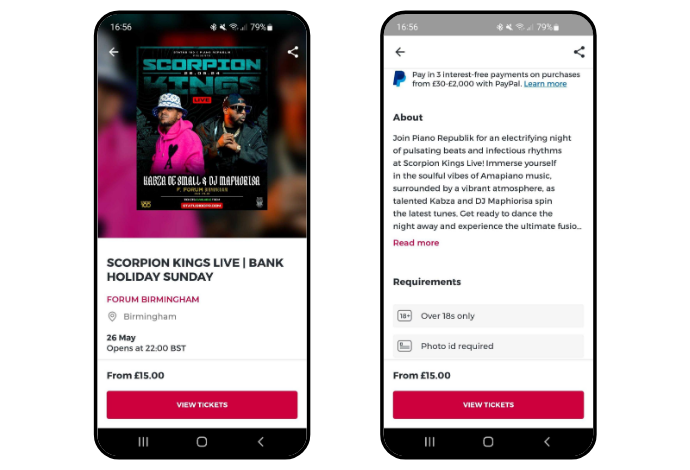
Each of your events listed on FIXR has its own page. This is not just a place where your audience can buy tickets, it's also an opportunity to inform and engage potential ticket buyers and help grow your fanbase.
By ensuring each of these pages is informative, up-to-date and relevant for users, and following Google's defining SEO guidelines of E-E-A-T (Experience, Expertise, Authoritativeness, and Trustworthiness), you can help improve your ranking and boost your chances of being discovered.
Things to consider:
Event name
The first thing a potential ticket buyer will see is the name of your event. That's true whether they're browsing the FIXR website or app, or discovering it via a search engine.
The event name determines the 'page title'; the initial description of the webpage that Google looks at for its results pages. That's why it should be as clear and simple as possible so that both Google and any visitors to the site know exactly what they're looking at. Use fewer than 60 characters to avoid Google shortening or replacing your event title.
This also factors into the 'meta title', which is the text displayed on search engine result pages and browser tabs to indicate the topic of a webpage. For the meta title, we also automatically include the event date, venue and the word 'tickets' to maximise the relevant information and enhance the SEO.
In addition, the event name will also determine the page's URL. You can edit the name once the event is live, but to maintain a consistent link for this page, this URL will remain the same based on what you named the event when you first put it live. So be mindful of that when creating the event.
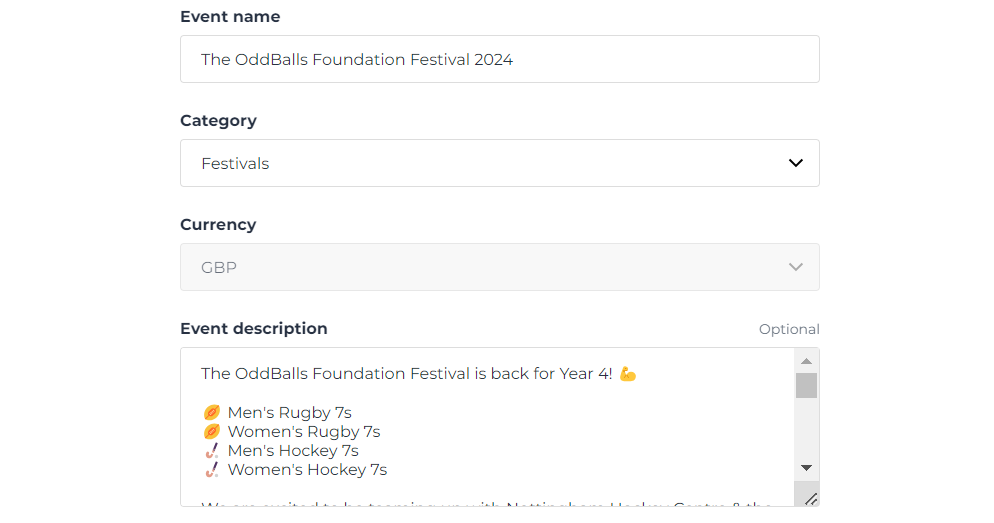
Category
Choosing the most appropriate category for each event is vital, as it determines where your event is featured across the FIXR website.
For example, any event tagged 'festival' will appear on this specific 'Festivals' page. Potential ticket buyers on the FIXR website can also use these categories to filter their search results and find the perfect event for them.
Description
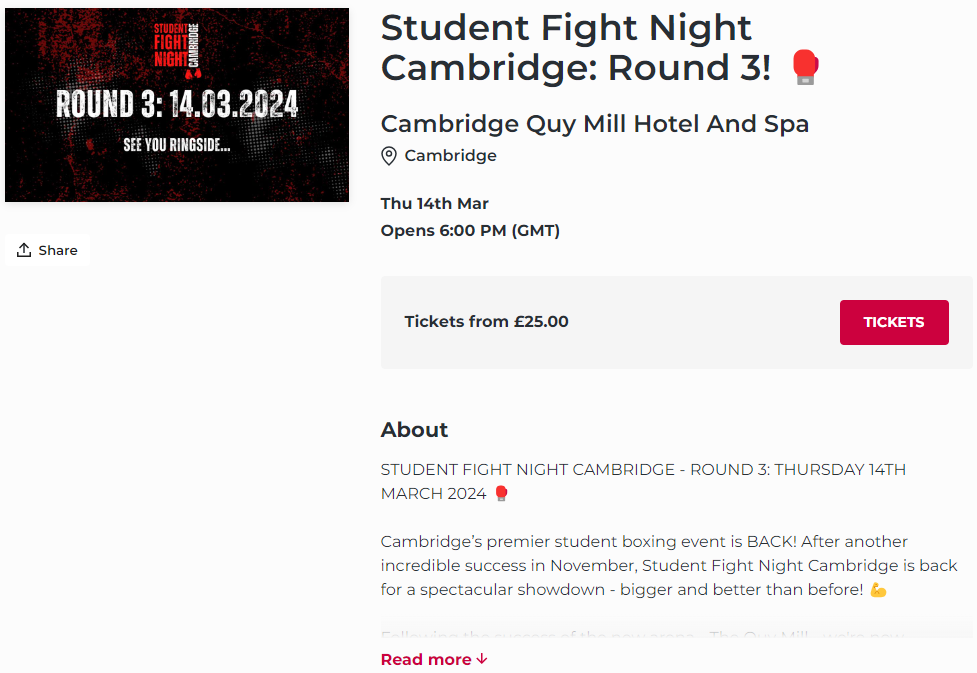
The description is probably the most important aspect of your event page's SEO. As well as thinking about what would be relevant and engaging for a potential ticket buyer, consider what people might be searching for - whether they're trying to find out specific details or searching Google for inspiration more generally.
Include the following:
What? The best way to engage potential ticket buyers and make your event discoverable is by telling them exactly what the event is all about. What type of event is it? How would you describe it? What can people expect to find there?
Where? Include the names of any relevant venues, locations, towns or cities to give a clear picture of where your event is taking place. While a separate address and map section appears further down the page, including location info within the description could also be beneficial for SEO.
When? Similar to the location, the date will feature in its own section of the page, however, there is also value in including the date of the event - including the day(s) of the week - within the description itself.
Why? Give anyone reading the description a reason to buy a ticket! Use this opportunity to let readers know what makes your event special.
Who? As well as information about who you are, and what you do as an event organiser, include information about who this event is for.
Other Keywords: Think about what people might be searching for. Adjectives like 'family-friendly, 'immersive' or 'unique'. Or other key search terms like 'tickets' and 'lineup'.
You can use tools like Google Keyword Planner or AlsoAsked to get insights into what people are searching for or use more specialised tools like SEMRush or Ahrefs for more in-depth SEO analysis.
Image
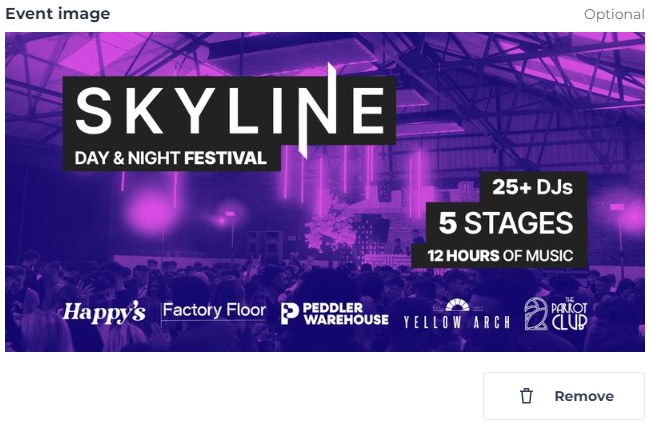
File Name
Giving your image file a clear and descriptive name can signal its relevance to Google. When saving a file, use a descriptive name containing no more than six words, separated by hyphens.
For the above example, "skyline-festival-sheffield-2024-flyer.png" is much better than "flyer.jpg" or a string of numbers. This helps Google understand the contents of the image and determine how relevant it is to searchers.
Quality
In their guide to image SEO best practices, Google emphasise the importance of using high-quality images to attract users to the page, and ensure attractive search result thumbnails, increasing the chances of driving traffic.
It's also good to ensure the image is the most recent and relevant for your event. For example, if details change, more acts are announced or a new theme is revealed, this should be reflected in the image so that it continues to be relevant and increases the page's trustworthiness (a key part of SEO best practices).
Entry requirements
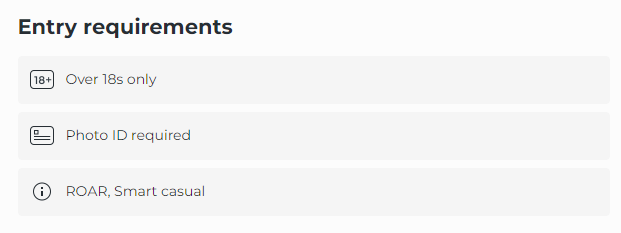
Adding details like last entry time and entry conditions provides even more detail to the event page, adding to its trustworthiness and giving users as much additional information as possible.
Read more: How to SEO optimise your FIXR organiser page
Head to your organiser account to create your next event, and discover useful insights about your audience, sales, and more.
Not listing events on FIXR yet, register here to get started. It takes less than 5 minutes!

